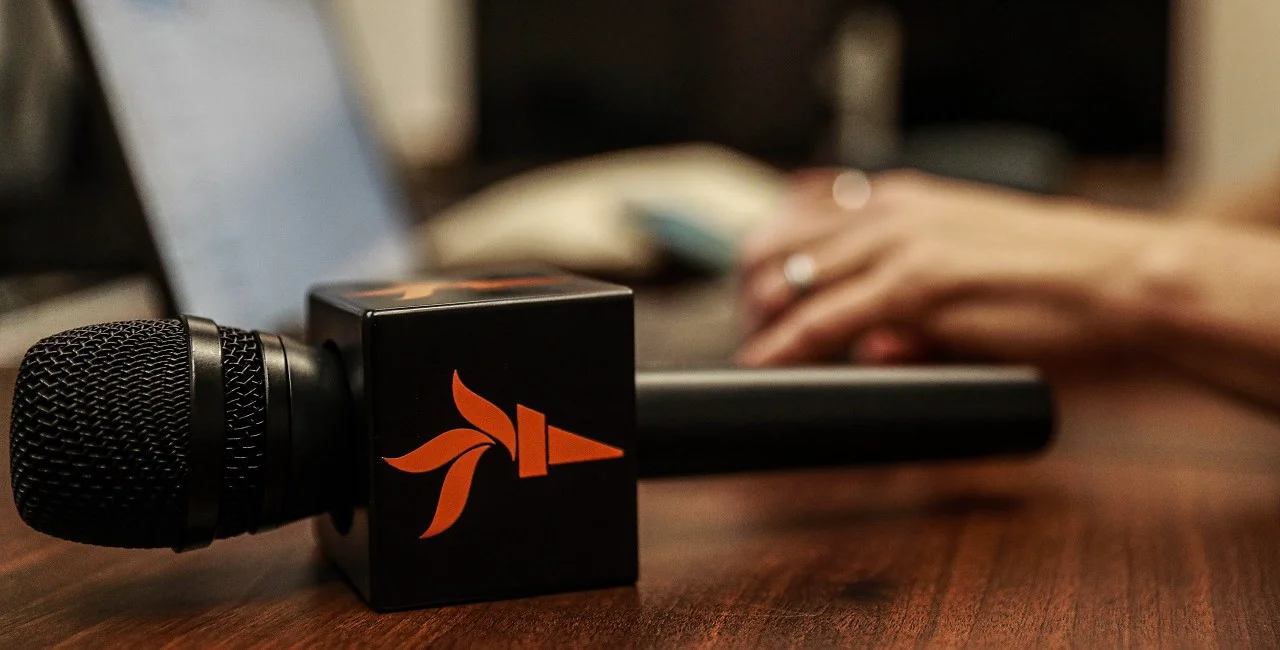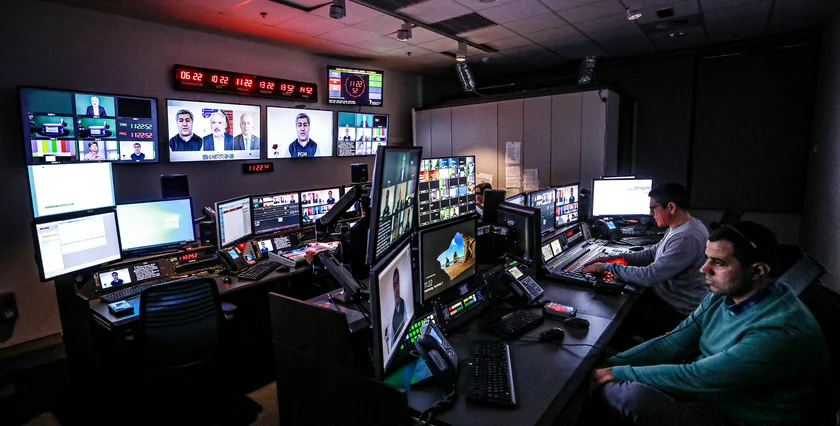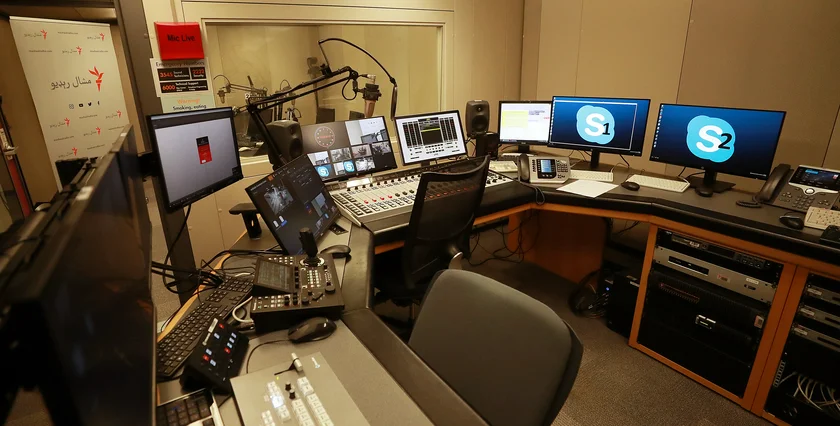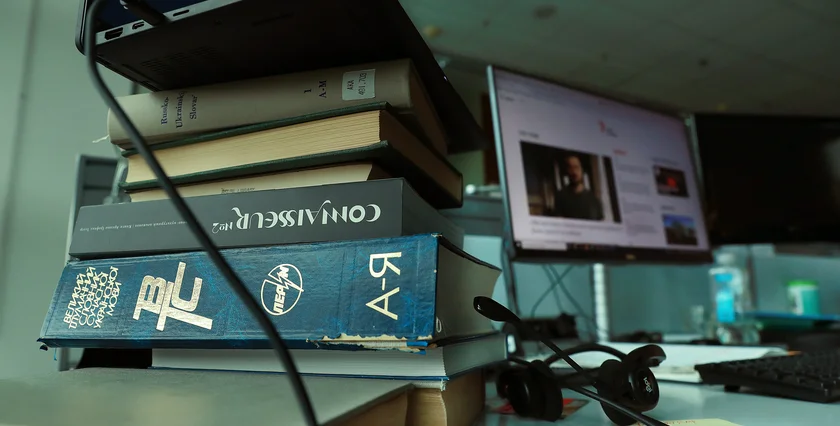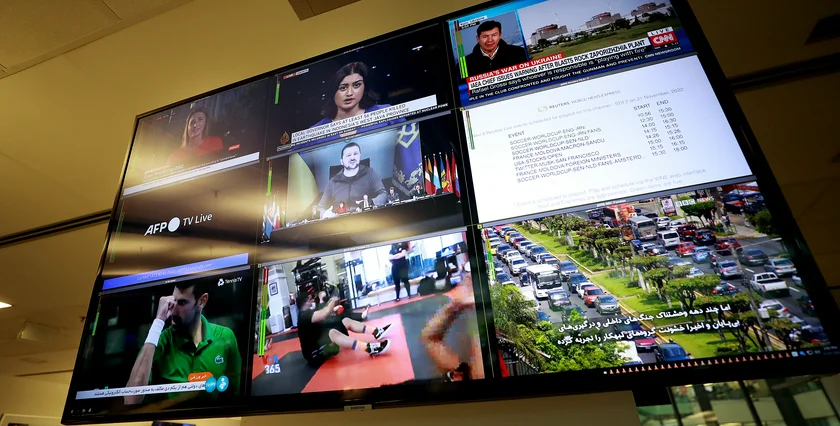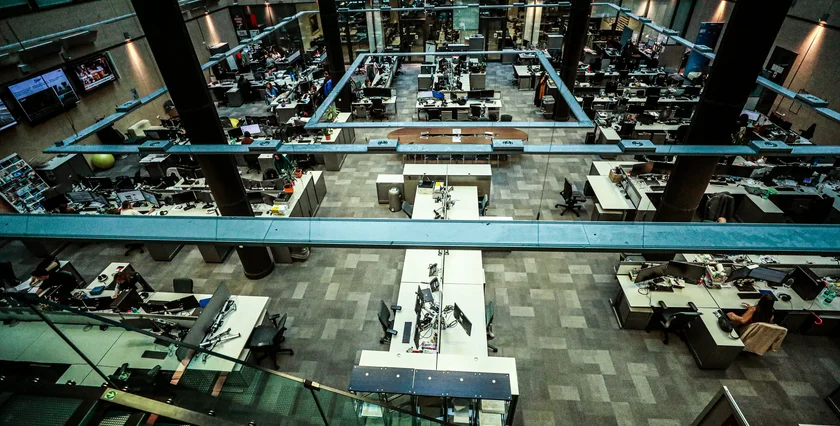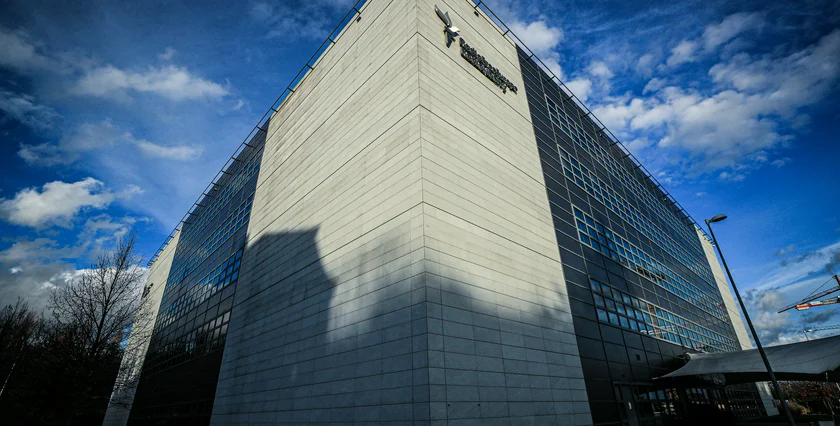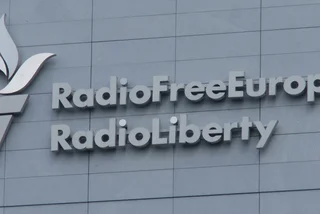Freedom of the press is a cornerstone of a democratic society. As Thomas Jefferson famously stated, "our liberty depends on the freedom of the press, and that cannot be limited without being lost."
RFE/RL is a private non-profit organization funded by the US Congress and has been a beacon of press freedom since the start of the Cold War. Today, it continues its mission by reaching global audiences in countries such as Russia and Belarus to Iran and Afghanistan, where a free press is banned, restricted, or not yet fully established.
RFE/RL’s impressive headquarters in Prague’s Želivského are home to hundreds of journalists, media professionals, support personnel (HR, Finance, IT, IT Security, etc.), including a rotating group of interns learning about the organization’s work. Expats.cz visited RFE/RL’s Prague headquarters to find out more about the current interns being fully immersed in the work of this famous media organization.
An internship experience that’s values-based and valuable.
Interns at RFE/RL are spread across various areas including Language Services, Broadcast Operations, Digital News Archive, External Affairs, HR, Broadcast Engineering, IT functions and more. On any given day, interns could be video editing, monitoring social media analytics, attending events and panel discussions, helping produce content for the RFE/RL website and social media or learning about copyright in media. For every intern, the experience involves learning about RFE/RL’s unique mission to bring independent journalism to audiences in countries where media freedom is restricted or threatened.
Emma Lane, an intern from the USA, describes her role working in RFE/RL’s Digital News Archive: “I go through a backlog of RFE/RL’s video files from 2019 from across all services and catalog them. I have to try to figure out what they are; often there’s no organization or additional information. The work requires a lot of research. It has been a fun challenge to analyze a video and figure out what it’s about. I’ve developed my analytical skills and I’ve become more detail oriented. Often, there are no subtitles, or the videos are very short with no context, so a lot of careful listening and reading is needed.”
Emma describes how, during the application process, she “applied for the general internship opening, but specified that I would be interested in the archives and digital media section. I was looking for something that would align with my interests and values. When I told the family of a friend in the Czech Republic about getting the internship, they were so excited for me, because of the impact that RFE/RL has had in this country.”
Opportunities for emerging talent
Every year, RFE/RL receives around 400 applications for its internship positions, with less than 10 percent of applicants eventually gaining a place. The competitiveness of the process is partly down to the organization’s emphasis on finding the right “mentor” for each and every intern, ensuring a high-quality learning experience and providing a wealth of opportunities. It is also the result of the limited number of available placements in each department of the organization, making each internship a unique and highly sought-after experience.
University students can apply, as well as those who graduated less than a year ago. According to Jitka Polačko, HR and Learning Development Specialist, the most successful applicants come from the countries where RFE/RL operates.
“For journalism internships, applicants need to speak the local language,” she says. “If an intern is an English speaker only, we’ll seek to place them in External Affairs, HR, Central News or other departments. If they speak both English and one of RFE/RL’s other languages, we have more options to place them in journalism roles.”
The company’s Prague headquarters are a remarkably multicultural environment. From one room to the next, you may find yourself mingling with journalists covering countries and cultures as diverse as Afghanistan, Serbia and Ukraine. Interns’ backgrounds are equally diverse, although Jitka says that the majority of them study communications, media, journalism, international relations or public relations.
“We always seek to find a place for the right candidates. As well as specific internship roles, we have a general internship option, in which candidates can send us their CV, allowing us to recommend them to various departments and find the right place for them,” Jitka explains. Internships typically last three months and can be undertaken in-person or remotely, including interning for one of RFE/RL’s bureaus.
Training for the future
Each RFE/RL intern has a mentor who is responsible for overseeing their work and development. This one-on-one approach creates a truly immersive experience, while interns have further opportunities for learning through guest lectures from RFE/RL professionals, and the chance to arrange meetings with people throughout the organization.
Ronald Rodrigues, a former intern who now works at RFE/RL as a multimedia journalist focusing mostly on Afghanistan, Iran and Pakistan, describes how these opportunities helped him develop: “I was curious during my internship; I engaged in conversations with editors and journalists who work for different countries to understand the workflow of an international news media organization. These skills now help me in my daily tasks, such as pitching story ideas, focusing on cross-border projects, and contributing my skills as a multimedia journalist in producing and editing videos, explainers and live radio shows.”
As one former intern described, a major positive is that “everyone is really open about their work and willing to give an insight into their job.” Another cited the “amount of independence I was given in my tasks”, while others praised “communicating with highly professional mentors” and “being treated by staff in the department as a colleague and not an intern”.
As Ronald puts it, RFE/RL’s internship scheme is a chance to “get a foot in the door and understand a larger media space” while honing your specific skills. As such, it’s a unique opportunity for aspiring media professionals or even those who seek to work in ‘support services’ roles (HR, Finance, IT, etc.) to join RFE/RL’s international mission and make their mark at an organization that’s symbolic of media freedom around the world.
This article was written in cooperation with Radio Free Europe | Radio Liberty. Read more about our partner content policies here.












 Reading time: 5 minutes
Reading time: 5 minutes 